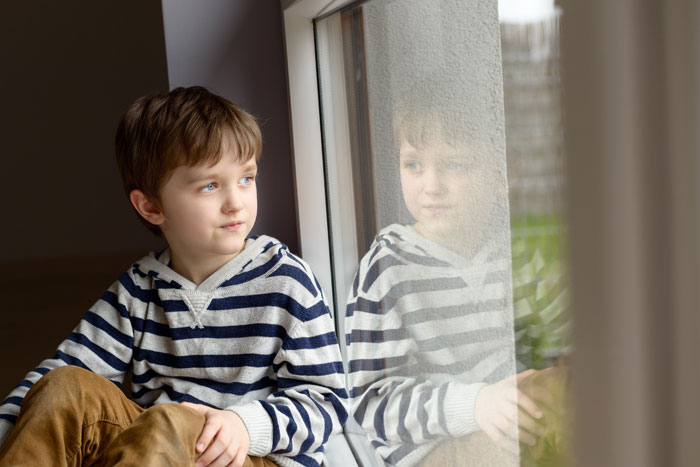Safety At Home
Home AloneHome Alone
There is no particular age at which children can be safely left at home alone. As parents, we decide that based on our child’s maturity and our own individual circumstances. Start with giving them short periods of time alone at home and gradually increase the duration, ensuring your child knows how to contact you or another responsible nearby adult in case of an emergency. Here’s how you can help prepare and keep them safe:
Answering the phone
Tips for parents:
• Installing an answering machine enables your children to hear who is calling and then decide to answer or not.
• If you or your child receives obscene or
threatening phone calls, hang up immediately, notify your local police and the phone company.
Tips for children:
• Always say to the person calling “My parents can’t come to the phone. Can I take a message?”
• Never say your parents aren’t home to anyone who calls, comes to the door, or you chat with online.
• Never tell your address to the person calling or contacting you online.
• Never answer the phone by saying your first name or last name.
• If the person calling asks for you by name, say “Who would you like to speak to?”.
• If the person calling asks you “What number is this?” say to them “What number were you trying to call?”.
• You don’t have to speak to anyone or tell them anything.
• If someone says something rude or threatening to you, hang up immediately and contact your parents.
Answering the door
Tips for parents:
• Install a lockable screen door and a peephole in the front door.
• If it is night, leave the outside light on.
• Ensure all emergency numbers, including a reliable relative’s or friend’s, are listed by the phone.
• Practise ‘pretend-dialing’ emergency numbers from your list, with your child. Rehearse what they should say.
Tips for children:
• Keep the screen door locked.
• Always ask “Who is it?” before answering the door.
• Always look through the peephole before answering the door – if it’s a stranger, or someone you don’t trust, you can pretend you are not at home.
• If you do not know the person or if it is a person you do not trust, do not let them in. If they do not leave, call the police and call a neighbour or a trusted nearby adult.
• Make sure you know where all the emergency numbers are kept near the phone and practise pretending to dial them.
If someone tries to enter the house:
Call the police immediately.
Telephone your parents, your neighbour or another adult you trust.
Preparing for Emergencies
Resuscitation can save a life, so it’s a good idea to learn first aid. St John Ambulance, Red Cross and a number of private first aid training companies run courses which also include information on resuscitation. Workcover can provide a list of accredited companies. Make a list of emergency numbers to keep near the telephone. Below are some suggestions for numbers to include. You can find the others in your local phone book. Police / Fire / Ambulance, local police, Poisons Information Centre, Council, Children’s Hospital, family doctor, Health Nurse, neighbours, relatives.








